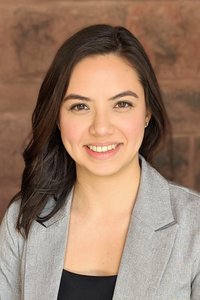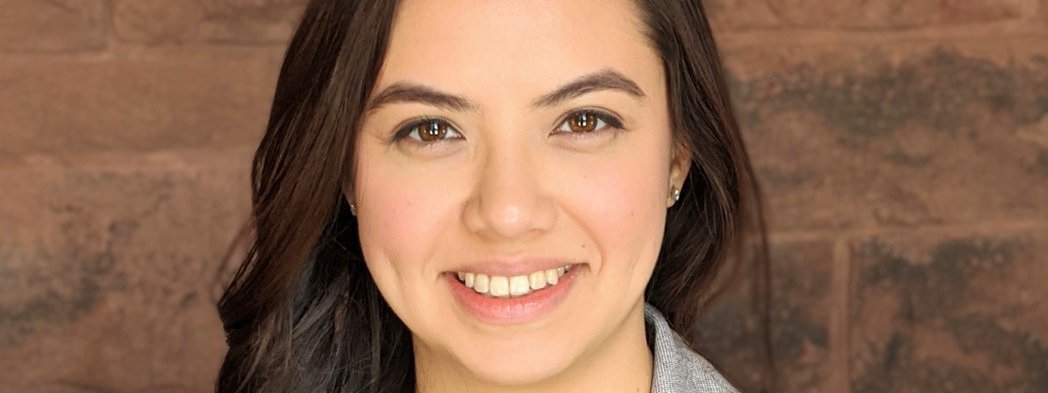Class of 2016
HBSc Physics - Physics Major - Biophysics Specialist, Minor- Mathematics
Dr. Stephanie Lim-Reinders is a pediatric resident at the Children’s Hospital of Eastern Ontario, Ottawa. She completed medical school at the University of Toronto and published widely in medical physics on the MRI-Linac technology through this time. She is a graduate of the biophysics specialist program at the University of Toronto.

Why did you choose physics?
It all started with my high school physics teacher, Dr. Burns. He was a NASA physicist who transitioned into teaching high school after being inspired by a NASA outreach program. Not only was he absolutely brilliant and passionate, he also had a very special way of making physics seem simple. He taught us that we already understood physics - it was intuitive through our deep sense of forces and kinetics. We know a ball will roll down a ramp. He guided us through the formulae and used physics to explain a world we already understood. I was so lucky to have a high school physics teacher who taught us that we were capable of grasping the tough stuff of physics.
When I got to university, I was not at all sure what I wanted to do. I definitely did not think I would be completing a physics degree – that was a program for people much smarter than myself. But I loved physics in high school, and enrolled in first year physics as an elective. Alas, I loved the balance of creativity in problem solving and the concrete answer you would find that explained the world around me.
I remember sitting down with Dr. Daniel James, my first-year physics professor. I told him plainly that I loved it – it was interesting, engaging, and satisfying – but was I capable, and what on Earth was I going to do with a physics degree? I remember him telling me that you can do anything. He had grads who became physicists, lawyers, doctors, anything they dreamed of becoming. He said it was like being at the top of the mountain, you could go anywhere from those heights.
What did you love about physics?
Most of all, I loved the people in my program. My fondest memories in undergrad were getting takeout with my friends and sitting in the library until the wee hours of the morning, staring at a (still) largely blank blackboard and problem set. We hoped that one of us would have the “aha” moment that would release us all from the problem set and send us off to bed. There were some tough head-scratching days, and not a moment passes where I am not filled with gratitude that we did it together.
The U of T professors were also wonderful, special people. For all the days where I thought physics was for smarter people than myself, they made time in their schedules to help me understand the material. As one of the few female students in the department, I also benefited from mentorship from numerous profs who were heavily invested in their students’ success. I really felt like part of the department.
The material was also a big draw for me! I love how, despite the complexity of physics, it was also simple in explaining a world we intuitively understand. I remember a moment in quantum physics when we learned about the randomness in the particle spin, and the professor asking us if we thought this meant that on the deepest particulate level there was a degree of free will. This was the stuff that kept me curious and always coming back for more.
How did physics help you in your career path?
I had a very unconventional path to medicine, coming from physics, as opposed to biology. I am so grateful I spent those four pre-med years learning a subject I loved. I was nervous that physics would not have prepared me for medicine, but it equipped me with many strengths and skills I had not anticipated. I learned to see problems and the world differently. Those nights staring at the blackboard taught us to lay out everything we knew, determine what we did not know, and work creatively to fill in the gaps to reach a solution. This skill has helped me endlessly in medicine.
It also brought me through a really wonderful research lab in medical physics. I had the chance to see the intersection of cutting-edge technology and its impact on patient care. The medical physicists at Sunnybrook, especially my supervisor, Dr. Anthony Kim, really inspired me to ask the big questions, and consider what matters most to patient care. He always followed with a push to be at the edge of innovation and creativity. It was a matter of envisioning what medicine could be and the quality of care we could be capable of delivering in his lab. I have taken this mindset forward to many of my patient visits, and in every subsequent research project.
Any final thoughts?
While I often felt unsure during those blank chalkboard nights in the library, in hindsight, I am forever grateful that I chose physics. The material was always challenging, but it was engaging, and the people made it worthwhile. Not only did it explain the world around us, but it also challenged us to see the world differently and tackle our problems, and all their variables, creatively. I now understand the advice from Dr. James, that physics brings you to the top of a mountain, and I am so glad we journeyed through that climb together. You really can go anywhere from a physics degree, and it will serve you well in any career you choose.

